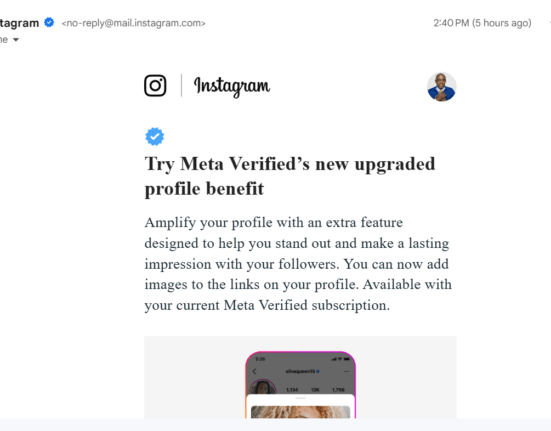Customer loyalty is the bedrock upon which successful businesses are built. It’s not just about attracting new customers; it’s about retaining them and nurturing long-term relationships. That’s why understanding how to increase customer loyalty can sustain a business.
A loyal customer base not only provides a steady revenue stream but also serves as a brand advocate, promoting the business through positive word-of-mouth. Hence, companies must constantly seek out ways to increase customer loyalty.
This article takes you through the importance of loyalty and practical tips on how to increase customer loyalty.
What is Customer Loyalty?
Customer loyalty is the likelihood of customers consistently choosing a particular brand, product, or service over others available in the market. It goes beyond mere satisfaction, reflecting customers’ deeper emotional connection and trust in a brand or company.
Businesses can build loyalty over time through positive experiences, reliable quality, excellent customer service, and value offerings. Once they have built customer loyalty, these customers will contribute to your company’s revenue in several ways.
First, loyal customers make repeat purchases, choosing your product or service over competitors’ offers. Since repeat customers are more likely to spend more than first-timers, they significantly contribute to your revenue stream.
Second, loyal customers also recommend your brand to others, acting as brand ambassadors. They help attract new customers through word-of-mouth marketing, which is very powerful for increasing brand awareness.
Finally, the best part is that loyal customers offer valuable feedback and insights, enabling you to leverage their input to improve your products, services, and overall customer experience. This feedback loop fosters innovation and continuous improvement, further strengthening customer loyalty.
Importance of Customer Loyalty To Small Business Owners and Start-Ups
Customer loyalty is crucial for small business owners and startups because it drives revenue and growth and provides a competitive edge. It can also yield significant long-term benefits for small businesses.
Below are the importance of customer loyalty:
1. Loyal customer bases are critical for sustained business growth and survival. They provide a steady stream of revenue and support during the initial stages when the business is vulnerable to failure.
2. Customer loyalty helps businesses stand out from larger competitors. Therefore, it can be a crucial differentiator for small businesses in crowded markets and niches.
3. Positive word-of-mouth recommendations from loyal customers can be precious for small businesses with limited marketing budgets. Satisfied customers can help attract new customers and expand the business’s reach at no additional cost.
4. Loyal customers are more likely to continue supporting the business during challenging times, providing a stable revenue stream.
9 Powerful Strategies That Can Help Businesses Cultivate And Enhance Customer Loyalty
Now that you understand the importance of customer loyalty to your business, here is how to increase it.
1. Understand Your Customers
The first step in fostering loyalty is to understand your customers. A deeper understanding of your customers can strengthen customer relationships and drive business success. You can use customer relationship management (CRM) tools to gather customer preference data and obtain purchase history and feedback.
Here are some valuable strategies to help you understand your customers better:
- Conduct market research through surveys, focus groups, interviews, and online analytics tools to gather relevant data.
- Develop detailed buyer personas that represent your ideal customers. This may include age, gender, occupation, interests, challenges, goals, and buying habits.
- Actively listen to your customers through various channels such as social media, customer support interactions, and online reviews. Ensure you pay attention to feedback, complaints, and suggestions.
- Monitor social media platforms to see what customers say about your brand, products, and competitors. Also, engage in conversations, respond to comments and messages, and gather valuable insights into sentiments and trends.
- Foster genuine relationships with your customers by engaging with them. Show appreciation for their loyalty, celebrate milestones, and acknowledge their needs and preferences.
2. Personalize the Experience
Customers appreciate personalized experiences that make them feel valued and understood. Thus, use the data collected to tailor your offerings, communications, and promotions to suit individual preferences. These data can help you identify patterns and insights to personalize customer experiences, foster stronger relationships, and drive long-term loyalty.
Don’t forget to address customers by name and recommend products based on past purchases. You can also send dynamic content through emails, websites, banners, and social media ads and send personalized offers or birthday discounts.
Loyalty programs that reward customers for their engagement and purchases can also help to increase customer loyalty. You can offer personalized rewards, discounts, and exclusive perks based on the customer’s spending habits and loyalty status.
3. Provide Exceptional Customer Service
Outstanding customer service can turn a satisfied customer into a loyal advocate. For this reason, you should train your staff to be knowledgeable, courteous, and responsive to customer inquiries and concerns. You should also offer multiple support channels like phone, Email, live chat, and social media for broader coverage.
Exceptional customer service can positively influence your business by contributing to long-term success and growth.
Here’s how it increases customer loyalty:
- Consistently delivering high-quality service builds trust and credibility, which is essential for fostering long-term loyalty.
- Positive interactions with your customer service team leave a lasting impression on customers.
- Providing swift resolutions and going above and beyond to solve problems can turn potentially negative experiences into positive ones.
- Customer service interactions offer opportunities to build personal connections with customers.
- Customers who receive exceptional service are more likely to make repeat purchases.
- Exceptional customer service can be a key differentiator in a competitive market.
- Customer service interactions provide valuable feedback that can help improve products and services.
- Loyal customers who have positive experiences with your customer service are more likely to create positive word-of-mouth referrals, becoming brand advocates.
4. Reward Loyalty
Reward programs can incentivize purchases and engagement among old customers. They can highly increase customer loyalty by providing tangible benefits and incentives to encourage continued engagement with your brand.
Hence, create a reward program that offers discounts, freebies, or exclusive perks and points that customers can redeem after every transaction. Rewards that increase with spending levels can entice customers to keep returning to unlock higher benefits.
You must also ensure that the reward program offers tangible benefits that provide physical or measurable value to customers. Such benefits may vary depending on the business’s nature and the target audience’s preferences.
Some examples of tangible rewards that businesses commonly offer in reward programs are discounts, free products or services, tiered rewards, birthday or anniversary gifts, cashback, point-based reward systems, exclusive access, and referral bonuses.
5. Foster Emotional Connections
Emotional connections are potent drivers of loyalty. They go beyond transactional interactions and focus on creating meaningful relationships built on trust, empathy, and shared values. You must develop an emotional connection with your customers to create meaningful experiences that resonate with them.
Here are some ways to foster emotional connections with your customers:
- Tell compelling stories that evoke emotions that resonate with your customer’s values and aspirations.
- Address them by name and recommend products or services based on their purchases or browsing history.
- Be genuine when interacting with customers, and let your brand’s personality shine through.
- Organize events and workshops where customers can connect with your brand.
- Express gratitude to your customers for their support and loyalty.
- Highlight your brand’s values and mission.
- Build a robust community.
6. Solicit and Act on Feedback
Customer feedback is essential for businesses. It provides valuable insights into customer satisfaction, preferences, and areas for improvement. It is also a means of understanding customers and building trust and lasting relationships.
Aside from building strong relationships with customers, feedback can reveal emerging trends, market demands, and opportunities for innovation. Positive customer feedback also serves as powerful social proof that can influence potential customers’ purchasing decisions.
Therefore, actively seek and act on customer feedback to understand what you’re doing well and where you can improve. You can get feedback through surveys, reviews, or social media polls.
7. Stay Consistent and Reliable
Staying consistent and reliable promotes trust, enhances customer satisfaction, and fosters long-term loyalty. When customers can predict what to expect from your brand, they are more likely to stay loyal.
Thus, your business must consistently deliver high-quality products, services, and experiences across all touchpoints. Also, ensure you always meet commitments, whether shipping orders on time or honoring warranties.
8. Communicate Regularly
Keep an open line of communication to stay at the forefront of customers’ minds, reinforcing your brand presence. Communication also builds trust, enhancing loyalty and business success. You can communicate with customers regularly through newsletters, responding to comments, sharing helpful tips, and running interactive campaigns.
There are various methods and platforms through which customers and business owners interact. However, they can vary in formality, speed, and effectiveness.
Common communication channels that have proven effective in increasing customer loyalty are face-to-face communication, Email, instant messaging, video conferencing, intranet, memos and notices, live chat, and collaboration tools. Choosing a suitable channel will depend on the nature of the message and your business and customers’ preferences.
9. Go Above and Beyond
Surprising and delighting your customers by exceeding their expectations is vital to increase customer loyalty. These gestures not only leave a positive impression but also create memorable experiences that inspire loyalty.
Below are some of the most effective strategies to help you delight your customers:
- Offer unexpected perks such as free samples with orders, handwritten thank-you notes, complimentary upgrades, expedited shipping at no extra cost, or extend flexible return policies and exclusive sneak peeks of upcoming products.
- Look for opportunities to create memorable experiences at every touchpoint, from the initial interaction to post-purchase support.
- Show your commitment to social and environmental causes by integrating sustainable practices into your business operations, supporting charitable initiatives, or participating in community events.
Conclusion
Knowing how to increase customer loyalty is vital for businesses seeking sustained success and growth. Customer loyalty is crucial for small businesses and startups as it provides a competitive edge and drives revenue. It also supports growth and sustainability.
You can increase customer loyalty by rewarding loyalty, personalizing customer experience, fostering emotional connections, acting on feedback, and providing exceptional services. Once you enhance customer loyalty, these customers will not only contribute to a steady revenue stream but also serve as brand advocates, helping you to attract new customers through positive word-of-mouth.
Frequently Asked Questions
Measuring customer loyalty provides valuable insights, enabling businesses to understand their customers better. It can also improve retention rates, drive revenue growth, and help you maintain a competitive edge in the market.
You can measure customer loyalty
through various metrics such as customer retention rate, repeat purchase rate, surveys, feedback forms, and social media monitoring.
Some common challenges businesses face in building customer loyalty include increasing competition, changing consumer preferences, and effectively measuring and tracking customer loyalty metrics.
They may also find it challenging to balance the costs of loyalty programs with the expected benefits and ensure employees align with customer-centric values.
Loyal customers are easy to spot. Typically, they make repeat purchases and spend more than new customers. Despite your competitor’s strategy to draw their attention, loyal customers will keep patronizing your brand. They also go the extra mile by recommending your product or service to others.
Technology effectively enables businesses to deliver personalized experiences and streamline processes. Companies can leverage technology to enhance customer loyalty by:
(a) Implementing customer relationship management (CRM) systems to gather and analyze customer data.
(b) Using personalized marketing automation tools to tailor messages and offers to fit individual preferences.
(c) Offering convenient online shopping experiences through e-commerce platforms and mobile apps.
(d) Leveraging social media and online review platforms to engage with customers, gather feedback, and address concerns in real-time.
Recovering from losing customer loyalty or trust requires proactive and strategic efforts to rebuild relationships and restore confidence. By taking proactive steps, businesses can recover from losing customer loyalty or trust and rebuild solid and enduring customer relationships.
Businesses can rebuild customer’s trust and loyalty by acknowledging mistakes and apologizing sincerely, taking prompt action to address customer concerns, and offering compensation, discounts, or other forms of restitution. They can also use customer feedback to identify areas for improvement and consistently communicate with customers.








